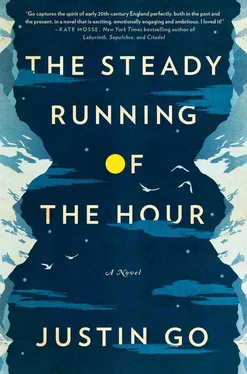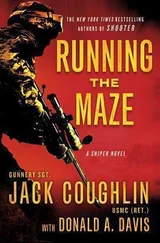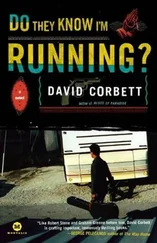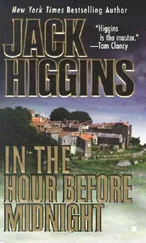I turn back to the road. A silver sedan is idling before me. The driver lowers the electric window. He wears wire-rimmed spectacles and he looks to be in his late thirties. He speaks softly in Icelandic, then in English.
— What are you doing out there?
I get into the car. As we accelerate, the driver fiddles with the heater’s controls on the dashboard.
— Warm enough?
— I am, thanks.
The ice on my shoulders melts damp circles into my coat. The driver shakes his head.
— What a time to be hitchhiking. I thought maybe you were a ghost standing out there. You’re from Germany?
— That’s just the coat. I’m from California.
— Sunny California, he murmurs. Why did you leave?
— I probably shouldn’t have.
— I would have stayed.
The driver directs the heater’s vents toward me.
— It’s early in the year for hail, he remarks. You have bad luck.
— I know.
The driver tells me he is a librarian at the university in Akureyri. He grew up in the Eastfjords and he is driving to his parents’ house north of Seyðisfjörður. We talk about books and I tell the librarian that I’m reading Njál’s Saga . He seems pleased by this, so I tell him a little bit about my research.
—Ísleifur, he repeats. I’ve never heard of him. But I don’t know anything about jewelry—
The librarian glances at me.
— One thing I don’t understand. Why would this Englishwoman have come here?
— That’s the problem. There isn’t any reason.
The librarian grins. — There’s always one reason to come to this country.
— What’s that?
— It’s far away from everything.
The librarian lowers the gear, the small engine whining as we climb a steep pass. He remarks that these hills have been inhabited for centuries, though little remains of most settlements but a few stones among the grass. We talk of the myriad stories of mankind both lost and recorded, and of the story that I’m after. The librarian supposes that for every story that is preserved, there must be a thousand others that vanish with the dead from all human memory.
— Imagine if your English couple hadn’t written letters, he says. Who would know they had ever existed?
We drive among hulking mountains, black and green ridges with patches of white snow. The librarian says that when he was a child an old woman went after stray sheep in these hills and lost her way. It happened on an autumn day, he says, when thick mists shrouded all landmarks from view. The old woman was a good walker. As dusk fell she wandered deeper into the mountains until she slipped on the rocks and fractured her leg. She could not walk. The nights were long and dark with freezing rain.
— Did she survive?
The librarian nods.
— She was wearing traditional clothing. Heavy wool. It keeps you warm even when wet.
It took the rescuers two days to find the old woman, he says, and when they reached her she spoke not of the vanished animals but of some rare dreams she had beheld, of a secret hidden between the hills and ridges. It was as if she had been lured by the promise of a prize, just as told in legends of the Nykur, a brook horse that tempts men onto its back only to gallop into swirling lakewater until they are drowned.
— The old woman, I say. She lived here when you were young?
The librarian shrugs. — I was in grammar school then. It must have been ’77 or ’78. But she was no Englishwoman, if that’s what you’re thinking. She was a Swede, she’d come here before the war—
— Can you turn the heater down?
The librarian ratchets the climate control from red to blue. I ask him when the old woman died, but he says that he isn’t certain, because she sold her farm and moved not long after the accident. The librarian repeats that she was Swedish and spoke Icelandic with a Swedish accent. Her husband had died long ago, he says, and she lived here with a caretaker from her own country.
— Can I put down the window for a minute?
— Of course.
I lower the window halfway, feeling the cold wind against my face. We crest the pass and I see the ocean in the distance, the water dark and glassy between the narrow fingers of the fjord. We go around the bend and the sea disappears again.
The librarian looks at me.
— Are you carsick? Should I pull over?
— I’m fine. I’m just needed some air. Listen, did you ever meet this old woman?
— A few times. There were not many people living in this area. I can tell you she wasn’t English. I’m sure of it.
— You visited her house?
— Once. I only went to the doorstep.
The librarian explains that his father was a book collector and had bought a personal library at an estate sale. There were foreign books in this library, among these a few volumes in French. His father knew the old woman read French and sent the books over with his son.
A shiver passes through me. The sky begins to pitch downward.
— Can you pull over for a second?
The librarian nods and steps on the brake, stopping in the middle of the road. He switches the hazard lights on, though we’ve seen no cars since he picked me up. The triangular lamp on the dashboard blinks on and off. I get out and take a few steps off the road, but my foot catches on the lava and I fall, opening a small cut on my hand. I stand up, staring at the bright sliver of blood on my palm.
The librarian approaches cautiously.
— Are you all right?
— Yeah. I just need some air—
I try to calm down, taking slow and deep breaths, looking up at the clouds and trying to fix the position of the sky and ground. I turn back to the librarian.
— What did she look like?
— Sorry?
— The old woman. What did she look like?
— I don’t know. Silver hair. Blue eyes.
— Did she take the books?
The librarian shakes his head. He removes his eyeglasses and rubs the lenses with a tissue from his pocket.
— She sent them all back, except for a few. I was pretty annoyed. They were heavy and I had to carry them back.
— Which did she keep?
He shrugs. — It was a long time ago.
The librarian replaces his eyeglasses, watching me with something between curiosity and concern.
— I just got a little carsick, I say. But I’m fine.
We get back into the car. I pull the lever to recline my seat and the librarian puts the key in the ignition. A noise chimes to warn that I haven’t fastened my seat belt. The librarian frowns.
— I think it was Baudelaire she kept. Or maybe Rimbaud.
The librarian starts the engine and we drive on toward the sea. I lean against the headrest and shut my eyes.
— The poetry, he says.

7 June 1924
Camp VI, 26,800 feet
Mount Everest, Tibet
The climbers mean to start before dawn, but when the moment comes they do not stir. It would be death to leave the tent. They wait until yellow rays of sunlight strike the canvas, the hunks of frozen condensation melting and dropping on their faces. The wind has all but ceased.
Price sits up in his sleeping bag.
— Sleep at all?
— I dreamt, Ashley rasps. But I didn’t sleep.
Price runs his fingers on the slushy canvas walls.
— Weather seems improved. We may have a go after all.
Ashley does not answer.
They move slowly, weak from their night of agony. It takes them an hour to dress and boil water for a thermos of hot coffee. Ashley’s mouth is chalky. No quantity of melted snow or tea will quench him. He feels cold everywhere. At last they leave the tent, Price with a coil of rope slung over one shoulder, over the other a small bag holding a vest-pocket Kodak.
Читать дальше













